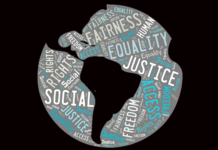Does a Psychiatric Diagnosis Have the Impact of a Medical Curse?
Over and over I've seen the aftermath of that ritual of receiving and internalizing a lifelong, pathologizing diagnosis. I don't think we can underestimate the uncanny power of receiving such proclamations about our personhood by people sanctioned by our culture to serve as arbiters of truth.
Psychological Research Fails to Capture Human Diversity, Researchers Call for Action
Data demonstrate an overreliance of non-representative and non-diverse sampling biases in psychological research.
Are Students Benefiting From the Growth Mindset Model?
Results from two meta-analyses reveal shortcomings with the growth mindset theory as applied in schools.
New Data on the Adverse Effects of Meditation and Mindfulness
Study reports on the less-examined findings of difficult and painful meditation-related experiences.
United Nations Statement Criticizes Medicalization of Depression on World Health Day
"There is a need of a shift in investments in mental health, from focusing on 'chemical imbalances' to focusing on 'power imbalances' and inequalities"
Dear Self-Proclaimed Progressives, Liberals and Humanitarians: You’ve Really Messed This One Up
When it comes to psychiatric diagnosis, I can be almost certain that anyone outside of my immediate field of work just won’t ‘get it,’ no matter where they stand on anything else. And not only won’t they get it; they will often actively be one of the unwitting oppressive masses, either through their inaction or worse.
What Does Social Justice Really Mean for Psychologists?
Without clarity and consensus around what social justice means, psychologists risk perpetuating injustices that undermine their stated mission.
Targeting Hypocrisy Reduces Islamophobia and Collective Blame of Muslims
Interventions calling attention to participants’ hypocrisy proved effective in reducing Islamophobia and collective blame of Muslims for individual acts of violence.
Mortification of the Self: The Impact of Stigma on Identity
This is how the vicious cycle continues: the more one internalizes stigma, the more she will distance herself from her social surroundings; the more she distances herself, the more she will experience proliferation of symptoms; and the more symptoms are present, the more others will stigmatize and "force" the person into further isolation.
Does Psychotherapy Reproduce or Disrupt Neoliberal Capitalism?
Researchers explore neoliberal influences on interactions in psychotherapy and question whether the radical potential of psychotherapy can counter prevailing social systems.
Berlin Manifesto for Humane Psychiatry Released
Changing the mental health and psychosocial support system in Germany requires public debate about the ways our society should help and support people in mental crisis and with chronic mental health problems. We believe the driving force behind all help and support should be humanitarianism and respect for inalienable human rights.
“Please Be Normal!” My Experience Working for NAMI
At my job with a NAMI affiliate, I heard daily from people who looked at family members with “mental illness” as non-people, non-human, the “other.” In the office, it was no different. If NAMI had a tagline, it would be “Please be normal like us.”
Feral Psychiatry: The Case of Garth Daniels
Garth Daniels, a 39-year-old Melbourne man, has been shackled for 110 days and forced to undergo ECT 94 times at three times a week against his will. Last year, his family asked me to provide a second opinion on Garth’s case. As predicted, my recommendations against continued ECT were quickly dismissed by the hospital. There are critically important issues at stake in this case.
When Psychiatric Medications Cause Psychiatric Symptoms
Dr. Yolande Lucire, a psychiatrist from Australia, recently published a paper about the iatrogenic effects of psychiatric drugs.
Do We Really Need Mental Health Professionals?
Professionals across the Western world, from a range of disciplines, earn their livings by offering services to reduce the misery and suffering of the people who seek their help. Do these paid helpers represent a fundamental force for healing, facilitating the recovery journeys of people with mental health problems, or are they a substantial part of the problem by maintaining our modestly effective and often damaging system?
Racism Linked to Poor Health Outcomes in Children
New study finds children who have been exposed to discrimination show higher likelihood of anxiety, depression, and ADHD.
Chosen Name Use in Transgender Youth Linked to Reduced Depression and Suicide
The ability of transgender youth to use their chosen name is connected to reduced depressive symptoms and suicidal thoughts/behaviors.
Racial Discrimination a Clear Contributor to Youth Mental Health Disparities
Greater perceptions of discrimination during adolescence are linked to more depressive and internalizing symptoms.
How Western Psychiatry Harms Alternative Understandings of Mental Health
An anthropological look at the Global Mental Health (GMH) movement suggests several ethical problems and contradictions in its mission.
Economic Policy Uncertainty Linked to Higher Suicide Rates in Men
A new study, published in Social Indicators Research, investigates the association between economic policy uncertainty and suicide rates in the US.
How Stigma and Social Factors Drive the Negative Health Outcomes Associated with Autism
A new study explores the interplay between social stress and quality of life for individuals self-identified with high-functioning autism.
Is the Mental Health System Yet Another Form of Institutional Racism?
With the political tide shifting across the United States and reports of hate crimes increasing daily, examining the systems that promote social control and act as tools of racism is paramount. Is it possible that the mental institution is just another venue for imprisoning Blacks unjustly?
Opening Doors in the Borderlands: An Interview with Liberation Psychologist Mary Watkins
MIA’s Micah Ingle interviews Mary Watkins about reorienting psychology toward liberation and social justice.
How Pain is Treated Depends on Socioeconomic Status
A new international study reveals how healthcare providers treat patient’s pain may depend on that patient’s socioeconomic status.
Psychiatric Diagnosis Can Lead to Epistemic Injustice, Researchers Claim
A discussion of the role of epistemic injustice in the experiences of patients diagnosed with psychiatric disorders.






























